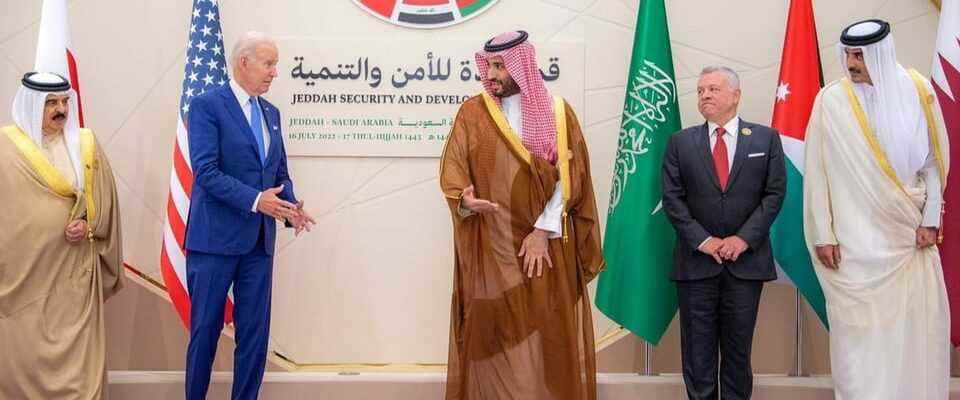- According to President Joe Biden, the US does not want to allow Iran to acquire nuclear weapons.
- Iran’s nuclear program must be restricted, Biden said at the Gulf Cooperation Council summit in Jeddah on Saturday.
- Because of the threat posed by Iran, the United States is promoting greater networking of air defense systems in partner countries.
“The United States is committed to ensuring that Iran never acquires a nuclear weapon,” Biden said at the Gulf Cooperation Council summit in Jeddah, Saudi Arabia. “While we continue to work closely with many of you to counter the threats Iran poses to the region, we are also seeking diplomacy to reinstate Iran’s nuclear program.” Biden attended the Gulf Summit at the end of his first trip to the Middle East as US President.
Biden was referring to US efforts to revive the nuclear deal with Iran. His predecessor Donald Trump had withdrawn the United States from the nuclear deal with Iran, which was signed in Vienna in 2015. Iran revival talks have not progressed for months.
Legend:
King Hamad bin Isa bin Salman al-Khalifa (Bahrain), US President Joe Biden, Crown Prince Mohammed bin Salman (Saudi Arabia), King Abdullah II (Jordan) and Sheikh Tamim bin Hamad al-Thani (Emir of Qatar) in a group photo the Gulf Cooperation Council Summit in Jeddah.
key stone
In view of the growing threat from Iran, the US wants to continue to support Saudi Arabia in its self-defense. Both states recorded this in a joint final declaration. President Biden met Saudi King Salman and Crown Prince Mohammed bin Salman on Friday.
Joint Closing Statement
Even during his visit to Israel, Biden described it as a “vital security interest” for the entire world that Iran did not arm itself with nuclear weapons.
protection of shipping
In addition, the United States wanted to remain involved in the Middle East, said Biden in Jeddah: “We will not go away and leave a vacuum that will be filled by China, Russia or Iran.” So Biden pledged US protection for shipping in the Middle East. Foreign and regional powers will not be allowed to threaten the freedom of navigation through waterways in the Middle East, he said. The free movement of goods through the Bab al-Mandab strait and the Strait of Hormuz are the “elixir of life”.
Networked air defenses in the Middle East
Because of the threat posed by Iran, the USA is still striving for a stronger network of air defense systems in its partner countries in the Middle East. A senior US official said on the sidelines of the Jeddah Gulf summit that Iran is continuing to expand its ballistic missile capabilities. Unmanned drones with greater range and power are also threatening the countries in the Gulf region, which makes an air defense system necessary.
Peace deal with Yemen
In the joint statement, the US and Saudi Arabia reiterated their strong support for the UN-brokered ceasefire in Yemen. Both sides emphasized that they would “extend the ceasefire in order to convert it into a permanent peace agreement”.
The ceasefire in Yemen was extended in June. A military alliance led by Saudi Arabia has been fighting the Houthi rebels there since 2015. Saudi Arabia sees the Houthis as an extension of Iran and wants to curb their influence. Shiite Iran is considered the arch-enemy of the Sunni Kingdom of Saudi Arabia and has steadily expanded its influence in the region.
